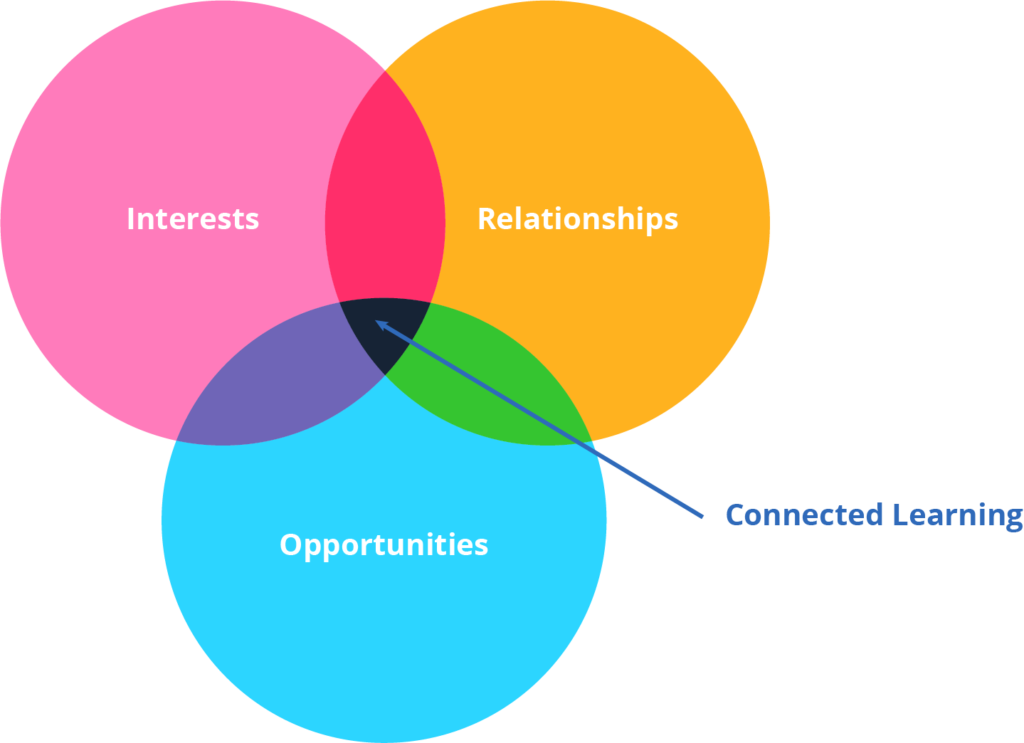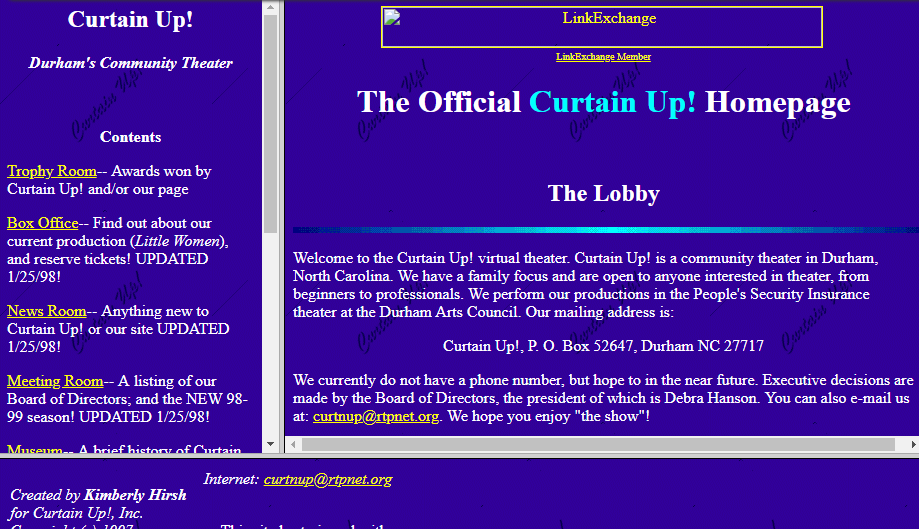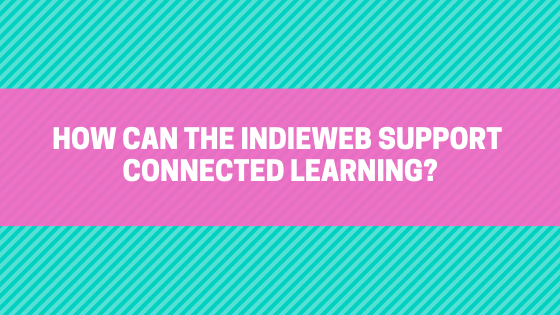IWCNHV19 Keynote: Connected Learning & the IndieWeb

Where are we going?
- Who am I?
- What is Connected Learning?
- How can the IndieWeb support Connected Learning?
Who am I?

- former high school Latin teacher
- former middle school librarian
- former public communications specialist for K-12 outreach program at UNC's School of Education
- doctoral student focused on Connected Learning in Libraries
- studying the information literacy practices of cosplayers
- a web geek since 1995ish?
- a connected learner

- type of learning experience
- research-based model
- design-oriented approach
Elements of Connected Learning experiences

An example Connected Learning experience
As a teenager, I was into community theater and web development.My parents supported me by driving me to rehearsal, providing me with books about web development, and giving me the tools I needed to develop websites (hardware & access). Other members of the community theater company gave me the opportunity to design the theater company’s website.
 (You can still browse the site at the Wayback Machine.)
(You can still browse the site at the Wayback Machine.)
That opportunity set me on a path that led to my getting a job as a Public Communications Specialist twelve years later.
Connected Learning, as an experience, is easier to attain if you have privilege and access. Connected Learning, as a design agenda, is equity-oriented and aimed at providing these experiences to nondominant youth.
Elements of Connected Learning environments
- Sponsorship for youth interests: providing mentorship, space, resources
- Shared practices: collaboration, competition, civic action, research
- Shared purpose: shared values, culture of sharing, feedback, and learning
- Connections across settings: home, school, community, work, face-to-face, online

My goal in giving you this introduction to Connected Learning today is to ask you to consider in your sessions today and as you build tomorrow what we can do to put the Connected Learning experience in the hands of the learner not just in choice of interests and choice of medium, but in ownership of data and learning products.


A potential case to inspire us
A lot of the research on Connected Learning has investigated fanfiction communities as Connected Learning environments. Fanfiction is just one specific practice among a whole world of fan practices, many of which can serve as Connected Learning experiences (see: cosplay, fan art, fanvids, fannish meta, wiki-ing).Creative fan practices and the communities that engage in them are excellent examples of connected learning, and also a source of what seems like endless itches for IndieWeb community members to scratch. Historically, fandom will find a platform not developed for it and create its own ways of using it. Often, the silos fans have leveraged change their terms of service, making the silo then inhospitable to fandom; fans then have to figure out where to go next and what to do.

Most recently, Tumblr changed its terms of service in December 2018, and fandom still hasn’t settled on where it will go next. (Dreamwidth and Pillowfort seem to be likely contenders, but each has its own idiosyncrasies that make it less than ideal.) There seems to be a pie-in-the-sky dream of a perfect platform for fandom.
Is it possible the IndieWeb is already that platform? IndieWeb tools developed to scratch fandom itches have the potential to be applied in many other affinity spaces, as well. Here are some places to find those itches:
Marianne: disconnected thoughts on fandom and the IndieWeb (August 29, 2017)
pearwaldorf: Fandom platform of the future - specs and features (December 5, 2018)
Greg McVerry: Gonna take a community to hold that backscratcher (December 7, 2018)
Chris Aldrich: Read disconnected thoughts on fandom and the IndieWeb (December 10, 2018)
Taking fandom as just one connected learning environment, we can find many ways to build IndieWeb functionality that could serve connected learners with other interests, as well.